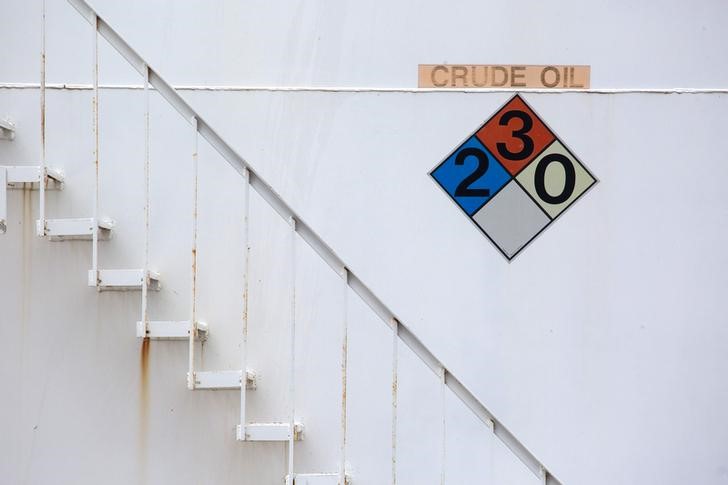Investing.com - Oil prices edged lower on Wednesday, but held near three-and-a-half-year highs reached in the prior session as markets focused on rising U.S. crude stockpiles along with the potential impact of U.S. sanctions on Iranian oil exports.
New York-traded WTI crude futures dipped 32 cents, or roughly 0.5%, to $70.98 a barrel by 3:40AM ET (0740GMT), after gaining 35 cents on Tuesday.
Meanwhile, Brent crude futures, the benchmark for oil prices outside the U.S., shed 37 cents, or about 0.5%, to $78.06 a barrel, following a 26-cent increase in the last session.
Despite the dips, both oil benchmarks remained close to their November 2014 highs of $71.92 and $79.47 a barrel respectively, reached the previous day.
Investors looked ahead to fresh weekly data on U.S. commercial crude inventories to gauge the strength of demand in the world’s largest oil consumer and how fast output levels will continue to rise.
The U.S. Energy Information Administration will release its official weekly oil supplies report for the week ended May 11 at 10:30AM ET (1430GMT), amid forecasts for an oil-stock drop of 763,000 barrels.
Analysts also forecast a fall of 1.4 million barrels for gasoline stockpiles, while distillate inventories are expected to drop by 2.1 million barrels.
After markets closed Tuesday, the American Petroleum Institute said that U.S. oil inventories climbed by nearly 4.9 million barrels last week.
The API data also showed a decline of about 3.4 million barrels in gasoline stockpiles, while inventories of distillates dropped by 768,000 barrels.
There are often sharp divergences between the API estimates and the official figures from EIA.
Meanwhile, investors continued to assess the implications of President Donald Trump walking away from the Iran nuclear deal earlier this month.
Walking away from the deal means that the United States will likely reimpose sanctions against Iran after 180 days, unless some other agreement is reached before then.
That could lead to tighter global oil supplies as they make it more difficult for Iran to export oil.
Iran, which is a major Middle East oil producer and member of the Organization of the Petroleum Exporting Countries (OPEC), resumed its role as a major oil exporter in January 2016 when international sanctions against Tehran were lifted in return for curbs on Iran's nuclear program.
